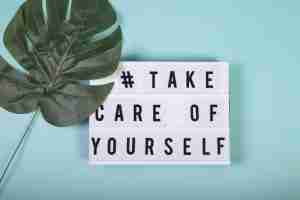Are you feeling stuck in a rut with no energy or motivation to complete your everyday tasks? Do you feel like you lack the energy and inspiration to pursue important goals and objectives in your life?
It’s normal to feel unmotivated and exhausted every once in a while. This can be due to stress, lack of exercise, unhealthy diet, busy schedule, sleep deprivation, or life events that have taken an emotional toll on you. This can affect your ability to focus and perform any task with conviction.
If this sounds familiar then it’s time for some action! Fortunately, there are a number of simple things that you can do to boost your energy levels and increase your motivation. From exercising regularly to changing up your diet and supplementing with key vitamins and minerals, there are endless ways to improve your mindset and get back on track toward achieving success.
In this article, we will explore the many options available when it comes to finding natural ways for increasing energy levels and improving motivation.
Key Energy and Motivation Article Takeaways:
- Low energy and motivation can be caused by stress, lack of exercise, an unhealthy diet, and more.
- Engaging in activities such as exercise, relaxation, and mindfulness can help improve well-being.
- Identifying the source of low energy and reframing negative thoughts into positive ones can help boost mindset.
The Ultimate Guide To Boosting Your Mood, Energy, And Motivation
Motivation and energy levels can be difficult to maintain, especially when life gets busy. It’s important to recognize that these levels fluctuate and that it’s okay if you don’t always get things done. Instead of beating yourself up for not being productive, try utilizing gentler, more effective methods to increase energy and motivation.
Identifying the need to boost energy and motivation can be difficult, but taking small steps toward well-being can have a cumulative effect. Start with whatever seems most doable and build up from there. This could include getting enough sleep, eating healthy meals, exercising regularly, or even just taking a few moments each day to relax and practice mindfulness. These activities will help create a foundation of increased energy and motivation that can lead to greater success in all areas of life.
Know That Being Tired Is Normal
Being tired is a normal part of life, but it can become an issue if it persists for long periods of time. According to research, 35.2% of adults average less than seven hours of sleep each night, and many Americans report being plagued by daytime drowsiness at least once a week due to obligations and lack of time for rest. Brené Brown suggests that “crazy-busy” behavior is often used as armor to avoid dealing with underlying emotions, which can draw on emotional resources and lead to mental exhaustion and burnout.
If you find yourself feeling tired or unmotivated more often than not, it could be due to emotional clutter or being overworked. To combat this, practice good sleep habits and avoid toxins that can contribute to fatigue. Eating a healthy diet, managing stress levels, and exercising regularly are also great ways to gain more energy. Additionally, it’s important to see your healthcare provider in order to rule out infections, disease, illness, or other medical conditions that could be causing fatigue.
Ways to Boost Your Energy And Motivation
Boosting energy and motivation can be a difficult task, especially when you don’t know where to start. It is important to remember that every step taken toward improving your well-being has a cumulative effect. Start with whatever seems most doable and build up from there. Identifying the source of low energy and motivation can help you target the areas that need improvement. Reframing negative thoughts into more positive and motivating ones can also help increase your energy and motivation levels.
There are many techniques that can be used to boost energy and motivation, such as:
Physical
Physical activity is arguably the most important part of staying healthy and fit. Taking a 10-30 minute walk every day can help keep the body in shape and improve overall health. Walking meetings are also a great way to combine physical activity with work, as they allow you to get some exercise while still being productive. There are no excuses for not taking daily walks, as they are easy and short enough to fit into any schedule.
In addition to regular walks, it is important to incorporate physical activity throughout the day. This could be as simple as taking the stairs instead of the elevator or parking further away from stores when running errands. It is also important to take regular breaks during the day if you sit for long periods of time at work, such as standing up and stretching or going for a quick walk around the office. By making small changes like these, you can easily add more physical activity to your daily routine and stay healthy and fit.
Emotional
Eating the right foods can have a huge impact on our emotional well-being. Eating food that is high in fiber and protein can help to fill both the stomach and the head, providing us with sustained energy throughout the day. This type of food helps to keep our blood sugar levels stable, which can reduce feelings of irritability or anxiety. Eating sugary, saturated foods may give a momentary high but then lead to a low energy level, leaving us feeling sluggish and unmotivated.
When it comes to thinking about food, we should focus on usability rather than just taste. Eating healthy meals that are balanced with all the essential nutrients will provide us with long-term benefits for our mental health. It’s important to take time out from our busy lives to prepare nutritious meals that will nourish both our bodies and minds.
Professional
Professional success is often a result of setting small goals and taking the time to celebrate our wins. It’s important to limit our to-do list to one item per day so that we can focus on completing it and feel a sense of accomplishment. Taking classes or workshops and attending conferences are great ways to stay up-to-date with the latest trends in our field and learn something new. Taking a day off from work can help us recharge and stay motivated.
It’s also important to remember why we do what we do. Reconnecting with the purpose of our work can help us stay focused on the bigger picture. Taking time to check in on customers and colleagues is another way to ensure that everyone is on the same page when it comes to projects or tasks. Finally, remembering that our work can make someone’s life easier is an important reminder of how valuable our contributions are.
Intellectual
Music has the power to motivate and inspire us in ways that nothing else can. It can be a great source of energy and motivation, helping us stay focused and productive. Whether it’s a classic rock anthem or an upbeat pop song, music can help us get through tough times and push us to reach our goals.
For those looking for some extra inspiration, there are plenty of resources available online. One such resource is “30 Inspirational Songs That Keep You Motivated for Life”, which provides a list of songs that have been proven to help people stay motivated and energized. From uplifting ballads to motivational rap songs, this list has something for everyone. With the right music playing in the background, you can find yourself feeling more inspired and ready to take on whatever life throws your way.
Spiritual
Meditation is an ancient practice that has been used for thousands of years to reduce stress, increase happiness and boost energy. It is a simple yet powerful tool that can be used in any environment, from a crowded office to the comfort of your own home. Taking just a minute to focus on breathing in and out can help bring energy levels back up and provide clarity of thought. This can be especially helpful when feeling overwhelmed or exhausted from a long day.
Finding a quiet moment in a crowded office can also help improve motivation and energy levels. Taking time away from the hustle and bustle of the workplace can help clear the mind and allow for more creative thinking. Meditation can also help you become more mindful of your thoughts and feelings, allowing you to better manage stress levels throughout the day. With regular practice, meditation can become an invaluable part of your daily routine that helps you stay energized and productive throughout the day.

Social
Socializing is an important part of life, but it can be draining when you’re feeling low. When you’re in need of a break from the hustle and bustle of high-energy hangouts, try something more chill like a museum or spa. Taking time to relax and recharge can help boost your energy and motivation.
It’s important to remember that low periods won’t last forever. Remind yourself that it’s okay to take some time off for self-care. Normalize taking off days and don’t feel guilty about it. Take the time to do activities that make you feel good, such as reading a book, going for a walk, or spending time with friends who understand your situation. Doing things that bring joy into your life will help lift your spirits and get you back on track.
The Most Effective Vitamins For Boosting Energy
Maintaining good energy levels is essential for leading a healthy and productive life. Eating a balanced diet, getting regular exercise, managing stress levels, and getting enough sleep are all important factors in maintaining natural energy levels. However, there are also vitamins and supplements that can help boost energy levels.
Ashwagandha
Ashwagandha is an adaptogen that has been used for centuries in Indian Ayurveda to increase energy and enhance the body’s resilience to physical and mental stress. Studies have shown that ashwagandha can reduce anxiety, stress, and fatigue levels. A 2012 study found that ashwagandha was effective in reducing fatigue and improving overall well-being compared to a placebo group. Results from another study showed that ashwagandha was safe and well-tolerated. Research also suggests that ashwagandha can improve exercise performance by allowing cyclists to cycling 7% longer than those given a placebo.
In addition to its stress-reducing effects, ashwagandha may also increase energy levels. It is thought to reduce mental and physical fatigue, which can lead to increased energy levels over time. Ashwagandha supplements are generally safe with a low risk of side effects, making them an attractive option for those looking for natural options.
Coenzyme Q10
Coenzyme Q10 (CoQ10) is an enzyme found naturally in the body, particularly in the heart, liver, pancreas, and kidneys. It is an antioxidant that helps to improve energy levels and protect cells from damage. CoQ10 can be obtained through diet by eating oily fish, liver or other organ meats, and whole grains. Those with certain health conditions may need to supplement with CoQ10 in order to get enough of it. The recommended dosage of CoQ10 is 30–90 mg per day.
Those taking blood thinners, insulin, or cancer treatment should check with a doctor before taking CoQ10 as it may interact with these medications. Mild side effects such as nausea, headache, and dizziness may occur when taking CoQ10 supplements. It is important to talk to your doctor about any potential risks associated with taking CoQ10 before starting supplementation.
Vitamin D
Vitamin D is an essential nutrient for our bodies, and a deficiency can lead to serious health problems. Muscle fatigue is one of the most common symptoms of a vitamin D deficiency, and it can be especially problematic for older adults, those with darker skin, and those who get less sun exposure. Studies have shown that vitamin D supplementation can improve muscle efficiency and reduce symptoms of depression.
In addition to its effects on muscle fatigue, vitamin D is important for energy levels and mood. As you age, your skin becomes less efficient at converting sunlight to vitamin D, so it’s important to ask your doctor for a test to determine if you are deficient in this vital nutrient. If you are found to be deficient in vitamin D, consider taking a supplement as part of your daily routine to ensure that you are getting enough of this important nutrient.
B vitamins
B vitamins are essential for energy production in the body and a deficiency can lead to fatigue. Vitamin B12 is found naturally in animal proteins such as meat, fish, and dairy products, and many foods are also fortified with it. Older adults, vegetarians, and vegans may be at higher risk of a vitamin B-12 deficiency due to reduced stomach acid and proteins which can interfere with the body’s ability to absorb B12. People with conditions that affect the gastrointestinal (GI) tract, such as celiac disease or Crohn’s disease, may also be at risk of deficiency.
If you suspect you may have a vitamin B-12 deficiency, it is important to talk to your doctor about potential treatments. Maintaining good levels of vitamin B-12 can help treat low energy due to a deficiency. Vitamin B12 helps transform the food you eat into energy that your cells can use and keeps your body’s nerves and blood cells healthy.
Creatine
Creatine is an amino acid found in red meat and seafood that has been shown to improve performance during exercise. A review of 53 studies found that creatine supplementation improved bench press strength by 5%, translating to an increase of 10 pounds for someone who can bench 200 pounds. Creatine also helps with recovery, prevents sports-induced injuries, and reduces the risk of heat-related illness when exercising. It does this by lending its phosphate to ADP to become ATP, providing energy for high-intensity, short-duration exercises.
Creatine supplementation increases energy stores, allowing for harder and longer training. A review of older adults found that those who took creatine gained 3.1 pounds (1.4 kg) of lean muscle mass compared to those who did not. The increased energy supply from creatine is largely attributed to the gains in muscle strength and size.
Iron
Iron is an essential nutrient for the body, as it is used to make hemoglobin, a protein in red blood cells that transports oxygen. Iron deficiency can cause fatigue and lack of energy, and people at higher risk of iron deficiency include menstruating women, pregnant or breastfeeding women, vegetarians or vegans, and those who exercise intensely or donate blood regularly. Supplementing with iron and consuming foods rich in iron and vitamin C can help increase absorption and reduce fatigue.
Iron deficiency anemia can result from an iron-poor diet, blood loss, or pregnancy. To avoid complications associated with iron deficiency anemia such as fatigue, a supplement may be necessary to correct the deficiency. Iron is essential for transporting oxygen to the body’s tissues; low iron levels can cause extreme fatigue. Certain conditions such as pregnancy may increase iron needs and require supplementation. It is important to speak with your doctor if you think you may have an iron deficiency so that they can recommend the best course of action for you.
L-theanine
L-theanine is an amino acid found in tea that has been studied for its potential to increase energy and cognitive performance when combined with caffeine. A 2017 study found that high doses of L-theanine with caffeine improved attention levels in 20 healthy males. A 2010 study also found that a combination of 97 mg of L-theanine and 40 mg of caffeine improved cognitive performance in young adults, resulting in increased alertness and reduced fatigue.
These studies suggest that L-theanine may be beneficial for those looking to improve their focus and concentration. It is important to note, however, that the effects of L-theanine are dose-dependent, meaning that different amounts will have different effects on the body. Therefore, it is important to consult with a healthcare professional before taking any supplement containing L-theanine.
Side Effects And Risks
Taking vitamins and supplements can be beneficial for many people, but it is important to be aware of the potential side effects and risks. Vitamins and supplements can cause mild side effects in some people, such as nausea or headaches. In more serious cases, severe side effects should be reported to a doctor immediately. Taking too much of certain supplements can lead to adverse symptoms, such as liver damage with ashwagandha, weight gain with creatine, and iron poisoning. Certain supplements may interact with medications or contain caffeine that can cause sleep problems in some people.
Women who are pregnant or breastfeeding should speak to a doctor before taking any new supplements. It is also important to review all medications with a primary care doctor every 3-6 months to ensure they are still needed and at the right dose. Medications such as high blood pressure medications, antidepressants, and antihistamines can have side effects that reduce energy levels. If this is the case, ask the doctor if the medication is still needed, or if a lower dose or different medication could be more effective.
My Top Bucket List’s Final Thoughts
Fatigue is a common symptom of vitamin deficiency and can make it hard to get up in the morning, go to work, or do your usual activities. Symptoms of fatigue include depression, lack of motivation, low energy, anxiety, muscle weakness, and pain, And taking vitamins and supplements can be a great way to increase energy and motivation levels.
However, it is important to speak with a healthcare professional before taking any new supplement, as certain supplements may interact with medications or cause adverse side effects.
Adam Anderson
Related posts
Hot Topics


